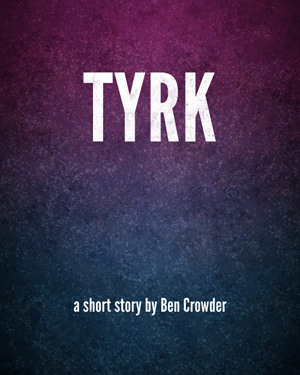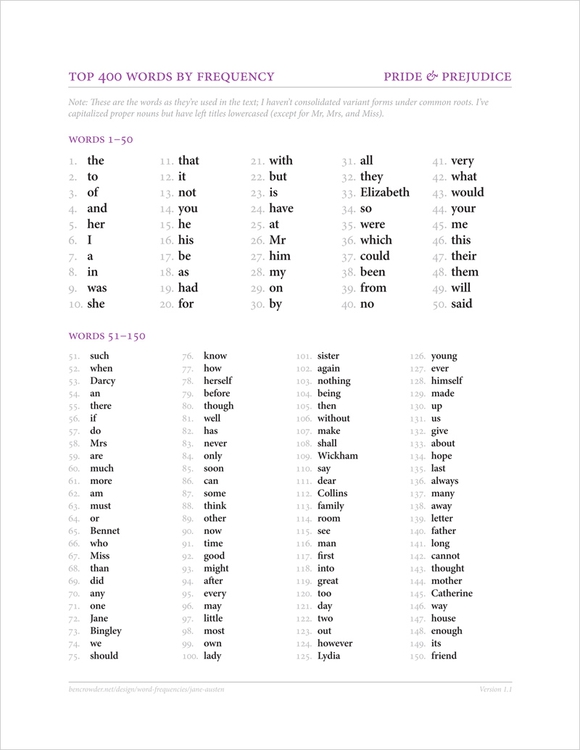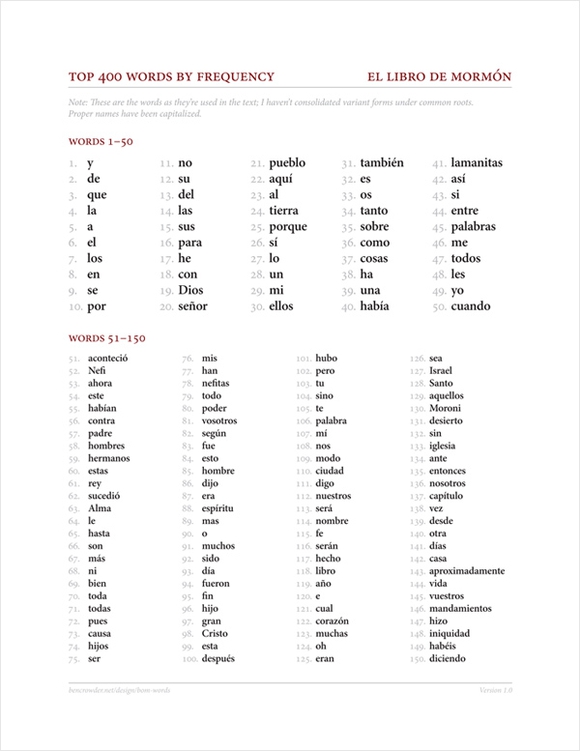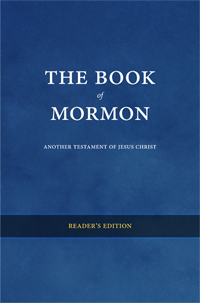Lost Among the Worldpools



Things have been a little slow in MTP land lately, but we’re getting back in business. Today we have new EPUB and Kindle editions of Joseph Smith as Scientist for you.
I’m going through our backlog and hope to have the rest converted to EPUB/Kindle/web within the next few months. (And we’ll be releasing some new books during that time as well.)
One of my all-time favorite hymns is “Come, Thou Fount of Every Blessing,” and today I found out I’ve been singing it wrong. (By the way, anyone know why it got taken out of the 1985 LDS hymnal?)
You know that part in the second verse where it says, “Here I raise my Ebenezer”? We were rehearsing it today in ward choir practice (I’m the accompanist) and when we got to that part and everyone sang “eb-uh-neezer” (as in Scrooge), one of the basses pointed out that it’s actually pronounced “eb-uh-nezzer.” Which rhymes better with pleasure later on in the verse, too. Turns out it’s a Hebrew word, Eben-ezer, meaning “stone of help” (it shows up in 1 Samuel 7:12).
I was googling around for information on Latin vowel shifts (to see if the shift from adalter to adulter was unique or if the a to u shift happened with other words, too) and came across the Omniglot page on Coptic Latin. My first thought was: uh, what? (Mostly since I’ve studied both Coptic and Latin, and Coptic doesn’t have really anything to do with Latin. Greek, yes. But Latin?)
Turns out it’s a modern mashup of the Coptic script and the Latin language, invented by David Biliot to help his students start learning Catholic Latin (which I’m guessing is just another name for Church Latin or ecclesiastical Latin). Interesting idea. And, you know, there’s precedence for this sort of thing, since Coptic itself was a mashup of the Greek script (with modifications) and the Egyptian language.
Here’s the sample text from Omniglot’s page (which I’ve retyped using two different fonts, the second of which I find a bit more readable):

Transliteration: Omnes homines dignitate et jure liberi et pares nascuntur, rationis et conscientiae participes sunt, quibus inter se concordiae studio est agendum.
I’ve often wondered if the words adult and adultery are related — you know, adultery is something adults do, that sort of thing. (An uncomfortable folk etymology at best.) I did a little digging in the OED and some Latin etymological dictionaries and found that, thank heavens, the two words have nothing to do with each other.
Adultery comes from the older French forms avouterie and adultère, respectively from the Latin words adulter (“adulterer”) and adulterium (“adultery”).
And where did adulter come from? Ad- (meaning “to”) and alter (“the other of two” — it’s the comparative form of alius, “another”). Add in a vowel shift from adalter to adulter and there you go.
So, an adulterer is someone who goes (ad usually implies movement) to “the other one,” to another — to someone who isn’t their spouse.
On the other hand, adult comes from the Latin adultus, which is the past participle of adolescere (“to grow up”). It means “grown up,” basically. Go figure.
(And adolescence is the condition of growing up, from the Latin adolescentia, which comes from the present participle, adolescentem.)

I’ve finished revising “Tyrk,” a short story, and it’s now available to read online. Here’s the beginning:
Tuesday was Laura’s first time at the circus. She’d read about circuses all her life, but her mother insisted they were dangerous. Laura suspected that the truth lay more in her mother’s fear of clowns than in any real danger, and that was why her mother didn’t know she was here.
Laura walked from tent to tent in awe at the feel of magic that drenched the fairgrounds. Anything could happen here. Trapeze, bearded lady, even the not-so-scary clowns — all of it intoxicated her. The hours flew by and before long it was almost dinnertime. She was tired and her legs felt a little stiff, but she still hadn’t been to the last tent, the one out past the Ferris wheel. It wouldn’t take long.
After I made those Book of Mormon word frequency charts, I got to wondering about other books and what their charts would look like. So I made charts for all of Jane Austen’s novels and for Jane Eyre. Here’s the first page of the chart for Pride & Prejudice:

Alrighty, I’ve finished the brand new Kindle versions and updated EPUB versions of the Doctrine & Covenants reader’s edition, Pearl of Great Price reader’s edition, and Words of the Prophets (a compilation of twenty-two sermons from the Book of Mormon). Enjoy.
Because I’m a language nerd who loves the Book of Mormon, I’ve put together a few charts showing the top 400 words by frequency in the Book of Mormon in Spanish, French, German, and Italian.

(There are two pages, which is why you only see 150 words here.)
For each language I downloaded the text from scriptures.lds.org and removed the HTML tags, then ran a modified version of my friend Chad’s text cleaner script to get a sorted list of the words by frequency (lowercased so I wouldn’t get duplicate words). I then recapitalized the words (proper names for all four languages, and with German I also capitalized the nouns as they’re used in the text) and put it all into InDesign.
My rule of thumb was that I want this to show the words as they appear in the text, so I haven’t consolidated variant forms, and in French I’ve kept the elided articles separate. Basically, if you want to read the Book of Mormon in any of these languages, these lists will show you what words appear and the forms they appear in.
I’m passingly familiar with these languages but I’m nowhere near fluent, so if any of you happen to spot errors, let me know.

I don’t know why I didn’t do this sooner, but I’ve released the Kindle version of my Book of Mormon reader’s edition. I’ve also updated the formatting on the EPUB version so it’s nicer (indented paragraphs and all that). Kindle versions and updated EPUBs of the D&C and Pearl of Great Price will come in the near future.